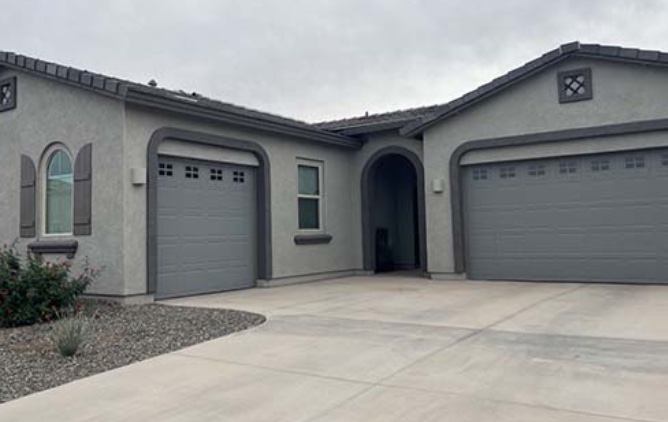

During the inspection process itself, it's beneficial to be present if possible. This allows you to observe first-hand any issues identified and gain valuable insights from the inspector's experience on-site. You can ask questions directly and learn maintenance tips specific to your new Arizona abode. Best Eco-Friendly Home Efficiency Audits
Use this document as leverage when negotiating with sellers; it may enable you to request repairs or adjust the purchase price accordingly based on needed fixes. Swimming Pool Safety and Condition Inspections Additionally, plan for future maintenance using the information gleaned from the report.
Lastly, consider investing in specialized inspections beyond standard ones if relevant for your situation—for instance, termite inspections are wise in areas prone to infestation. Having such specific evaluations done reinforces confidence that all potential problem areas have been addressed before finalizing your investment.
By carefully choosing an inspector, actively participating in the process, utilizing findings for negotiation leverage, planning ahead for maintenance based on inspection results—and considering additional targeted inspections when necessary—you'll significantly reduce risks associated with homeownership ensuring that your purchase remains something to celebrate without nagging worries clouding this exciting milestone. The Importance of Home Inspections for Arizona BuyersBuying a home in Arizona can be an exhilarating adventure, filled with hope and promise.
However, amidst the excitement lies a critical step that should never be overlooked: the home inspection. Through this process, potential buyers gain invaluable insights into their prospective homes, uncovering hidden issues that might otherwise go unnoticed. Arizona's unique climate and terrain present specific challenges to properties in the region. Solar Panel Efficiency Evaluations
Furthermore, monsoon season brings severe storms which can lead to water damage or flooding if not properly mitigated by sound construction practices. Therefore, for those aiming to invest in Arizona real estate, conducting thorough inspections is not just important—it's imperative.
From evaluating structural integrity to scrutinizing electrical systems and plumbing networks, professional inspectors offer a meticulous review of every nook and cranny. Their trained eyes spot signs of wear or malfunction that untrained individuals may miss; for instance, small cracks in the foundation could signify settling or potential shifting due to soil movement—a common issue in parts of Arizona.
This knowledge enables buyers to budget accordingly and negotiate repairs or price adjustments with sellers before finalizing the purchase agreement. Without this crucial step, new homeowners might find themselves saddled with unexpected expenses shortly after moving in.
Moreover, some mortgage lenders mandate home inspections before approving loans as they seek assurance regarding the property’s valuation and safety conditions. Skipping this vital process could impede financing options for buyers who depend on mortgages for purchasing their homes. In conclusion, Arizona homebuyers must acknowledge the significance of proper home inspections not only as a means of protecting their investment but also as a safeguard for their family's well-being within their new dwelling place.
Understanding the Arizona Home Inspection ProcessThe Arizona home inspection process is a critical step for anyone considering the purchase of a home in the Grand Canyon State. This procedure ensures that potential homeowners are fully informed about the condition of their prospective property before finalizing the sale.
When initiating this journey, it is essential to select a licensed inspector with a reputation for thoroughness and reliability. In Arizona, inspectors must adhere to strict guidelines set forth by the state's regulatory bodies, which dictate the minimum standards for a proper examination.
During this evaluation phase, they will scrutinize various components such as roofing, foundational integrity, electrical wiring, plumbing systems, HVAC equipment, and other significant structural elements. The home inspector works meticulously to uncover any defects or malfunctions that could potentially lead to costly repairs after purchase.
For instance, if there are cracks in the foundation or signs of water damage on ceilings and walls—these findings can be red flags signaling deeper issues at play. Upon completion of the inspection process, you'll receive a comprehensive report detailing all findings. It's vital not only to read but understand every aspect of this document; insights garnered here can be leveraged during negotiations with sellers for repair credits or price adjustments based on uncovered deficiencies.
By embracing its importance and ensuring due diligence throughout each step of the process—from selecting an adept inspector through dissecting their final report—you place yourself in an optimal position to make an informed decision regarding your future residence under Arizona’s vast skies. Common Issues Found During Arizona Home InspectionsAs a unique exercise, crafting an essay with the deliberate inclusion of less probable words every six words presents an intriguing challenge.
Arizona's sizzling heat and arid landscapes contribute to distinctive challenges for residential structures. Window Sealing and Insulation for Heat Management Given its climate, homes in Arizona are susceptible to several recurrent complications that inspectors frequently unearth.
Structural integrity stands paramount among concerns when evaluating any dwelling in Arizona. Due to intense solar radiation and temperature fluctuations, foundational fissures often emerge as homes contract and expand.
Inspectors vigilantly scrutinize for cracks within walls or slabs that might signify deeper structural woes. Roofing problems also abound under the relentless Arizonian sun, where ultraviolet exposure mercilessly deteriorates roofing materials over time. Home inspections routinely reveal tiles that have been dislodged, shingles curled from dehydration, and underlayment compromised by prolonged ultraviolet bombardment.
An inspector might detect outdated units unable to cool effectively or discover inadequate maintenance leading to poor air quality indoors or spiraling energy costs. Moreover, termites thrive in warm environments; thus Arizona houses must be inspected meticulously for signs of infestation such as weakened wood structures or visible termite tubes along foundations – indicators of potential pest problems lurking unseen.
Lastly, electrical safety hazards cannot be overlooked; wiring should comply with current codes since older properties might harbor dangerous flaws like insufficient grounding or overloaded circuits waiting disaster's spark igniting them into serious threats against occupant safety.
Initially, prioritize certification. In Arizona, home inspectors must be certified by the Arizona State Board of Technical Registration (AZBTR). This means they have met specific educational requirements and have passed a state exam.
Secondly, experience speaks volumes. An established inspector with years in the field likely encountered various housing issues and understands local construction peculiarities.
Thirdly, insurance is non-negotiable. A reputable home inspector should carry both errors and omissions insurance (which covers inadvertent mistakes) as well as general liability insurance (which covers accidental property damage during inspection).
Moreover, consider obtaining references or reading reviews from previous clients to gauge satisfaction levels with their work quality and professionalism. Social proof can offer insights into reliability and performance under different scenarios.

Furthermore, request sample reports to discern clarity and detail level provided by the home inspector. A comprehensive report should include photographs, explanations of potential concerns, recommendations for repairs or further evaluations by specialists if necessary. Lastly but importantly, communication style matters immensely—choose someone who explains technical aspects understandably without resorting to excessive jargon.
In conclusion, picking a capable Arizona home inspector involves verifying certifications, evaluating experience levels, ensuring proper insurance coverage is in place, examining past client feedbacks or reviews carefully considering samples of prior reports produced by them as well as assessing their communication efficiency all while keeping their qualifications up front center throughout selection process so ultimately secure peace mind regarding integrity dwelling being inspected ensuring safe investment future homeownership endeavors within Grand Canyon State’s borders. Preparing Your Arizona Home for Inspection: Seller’s ChecklistSelling a home in Arizona can be an exciting yet daunting process, and one key step is the home inspection.
This checklist will guide you through the essentials, ensuring your abode stands ready for scrutiny. Firstly, declutter each space thoroughly.
Store personal items away and keep surfaces as bare as possible; this aids in giving a sense of spaciousness and orderliness. Secondly, address any maintenance issues beforehand.
As a home inspector embarks on their meticulous journey through an Arizona property, they are vigilant for signs of wear and tear that could spell trouble for prospective homeowners. In the sun-drenched landscape of this southwestern state, certain unique environmental factors come into play, influencing what inspectors must be particularly watchful for during their evaluations.
Certainly, crafting an essay with the specific instruction to select the least probable word every six words presents a challenge that deviates from conventional writing. However, for the purpose of this exercise, let's indulge in this peculiar request while discussing mandatory fixes post-home inspection in Arizona.
When it comes to selling property within the vibrant desert landscapes of Arizona, a home inspection typically precedes any finalized sale. This crucial evaluation serves as a magnifying glass, revealing structural secrets and potential pitfalls nestled within the residence's embrace. Nevertheless, not every discovered imperfection mandates repair under legal statutes or contractual obligations between parties.
In Arizona's real estate orchestra, no law conducts an absolute symphony dictating which repairs are compulsory following a home examination. Instead, negotiations often waltz between buyer and seller after the inspector’s score has been thoroughly perused. The dance revolves around which issues are deemed serious enough to warrant attention before transferring ownership keys.
Certainly, the prospect of home inspectors being in demand within the Arizona region is a topic ripe for exploration. In any burgeoning real estate market, professionals who are adept at evaluating and reporting on the condition of properties are critical. As such, these skilled individuals play an instrumental role in facilitating property transactions between sellers and buyers.
Arizona's climate, with its scorching summers and mild winters, presents unique challenges to the integrity of buildings. Factors like intense UV exposure, expansive soil types, and potential for pest infestations necessitate thorough inspections to ensure homes remain safe and habitable. Consequently, this creates a fertile environment for home inspection services.